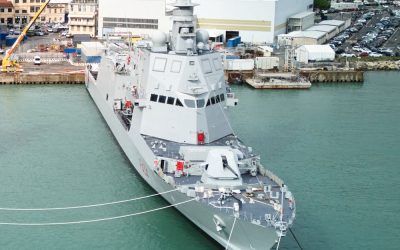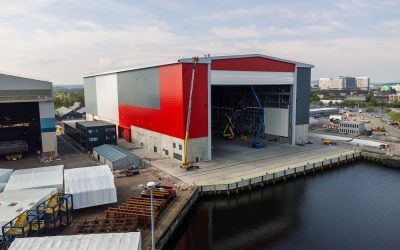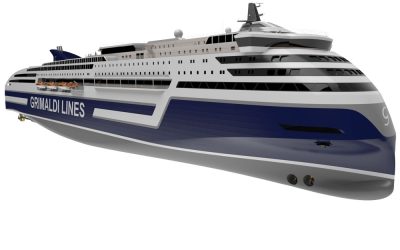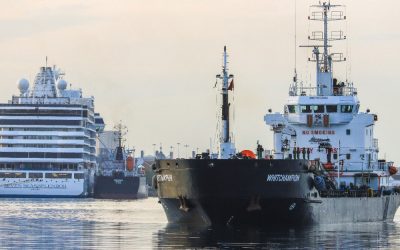The fortunes of the suppliers and contractors that form an important part of the Finnish shipbuilding cluster have started to brighten in the aftermath of the Covid-19 pandemic and the recovery is felt in many parts of the cluster.
While all three domestic yards have secured new business in the past 12 months, “there are positive vibes coming from other sources as well,” asserts Elina Andersson, secretary general at Finnish Marine Industries.
Naval architects and equipment suppliers alike have been reporting an upturn in enquiries and orders, with the transition to green fuels changing the business landscape for companies such as Deltamarin, the Turku-based consultant naval architect firm.
Considering the many open questions related to the decarbonisation, owners are best served by building ships that can be relatively easily adopted to use other fuels over their lifespan, thinks Kristian Knaapi, sales manager. He references the pure car and truck carriers Deltamarin has designed for Hoegh Autoliners in Norway (pictured), to be built in China. These will run initially on LNG, but can adapt for methanol later on.
There is a growing demand for solutions like this across all shiptypes – including those such as bulk carriers that have not been traditionally designed in Finland – albeit the focus has been on higher ticket price items, such as cruise ships and ferries.
“These are really exciting times: the Covid-19 pandemic meant that we were all working from home, but we have experienced an exponential increase in enquiries from owners,” Knaapi enthuses.
Plethora of options
The plethora of new technologies on the marketplace – and new ones are likely to be introduced as time passes – to make shipping greener means that even an owner planning to contract a dry bulk carrier now has several choices to make to reach his green goals.
In addition to new fuels, owners are also interested in emerging technologies such as wind power and Knaapi says Deltamarin is involved in pilot projects to test a new product in this field – details of which will be disclosed in due course.
Given the transition to greener shipping is only likely to accelerate ordering of newbuildings, the outlook for companies such as Deltamarin seems highly encouraging. Indeed, an ongoing question is the extent to which existing vessels will be retrofitted with green technologies or whether they will be replaced with newbuildings that have such features included from the outset, notes Andersson.
Although the recovery of cruise business has been hampered by the Omicron variant, the sector remains vital for Finnish shipyards and numerous suppliers and contractors. On a positive note, no orders have been cancelled for cruise ships, albeit the delivery schedules for some have been postponed, with downstream implications for the supply chains concerned.
There has been some bad news as well, however. The recent collapse of MV Werften, the German cruise ship builder owned by Genting Hong Kong, which has also become insolvent, has been felt in Finland.
A total of 16 Finnish companies had contracts worth €500 million for the two 208,000gt Global class ships that were planned to be built at MV Werften. The second ship was, however, cancelled before the collapse of the yard and its owner.
Finnvera plc, the Finnish export credit agency, has an exposure of €365 million related to the two ships. The exact amount of risk exposure to the agency remains yet to be determined, says Jussi Haarasilta, EVP Large Corporates at Finnvera.
Startups in digitalisation
While some companies had to make redundancies and lay off staff during the pandemic, people with the right skills find employment in the cluster now, Andersson points out.
Quite a few new companies have also been set up in recent times and many of them are involved in the digitalisation of the shipping business. This again also has links to green technologies and the outlook for the startups that have emerged, and ones that may yet be established, are encouraging.
Many of these businesses also serve other industries and one of the trends Andersson expects to see in the future is a blurring of the lines between shipping and other businesses: technologies that can be used at sea may also be used elsewhere. In addition, onshore developments in areas such as green fuel production could well prove to benefit the maritime industry, she concludes.





